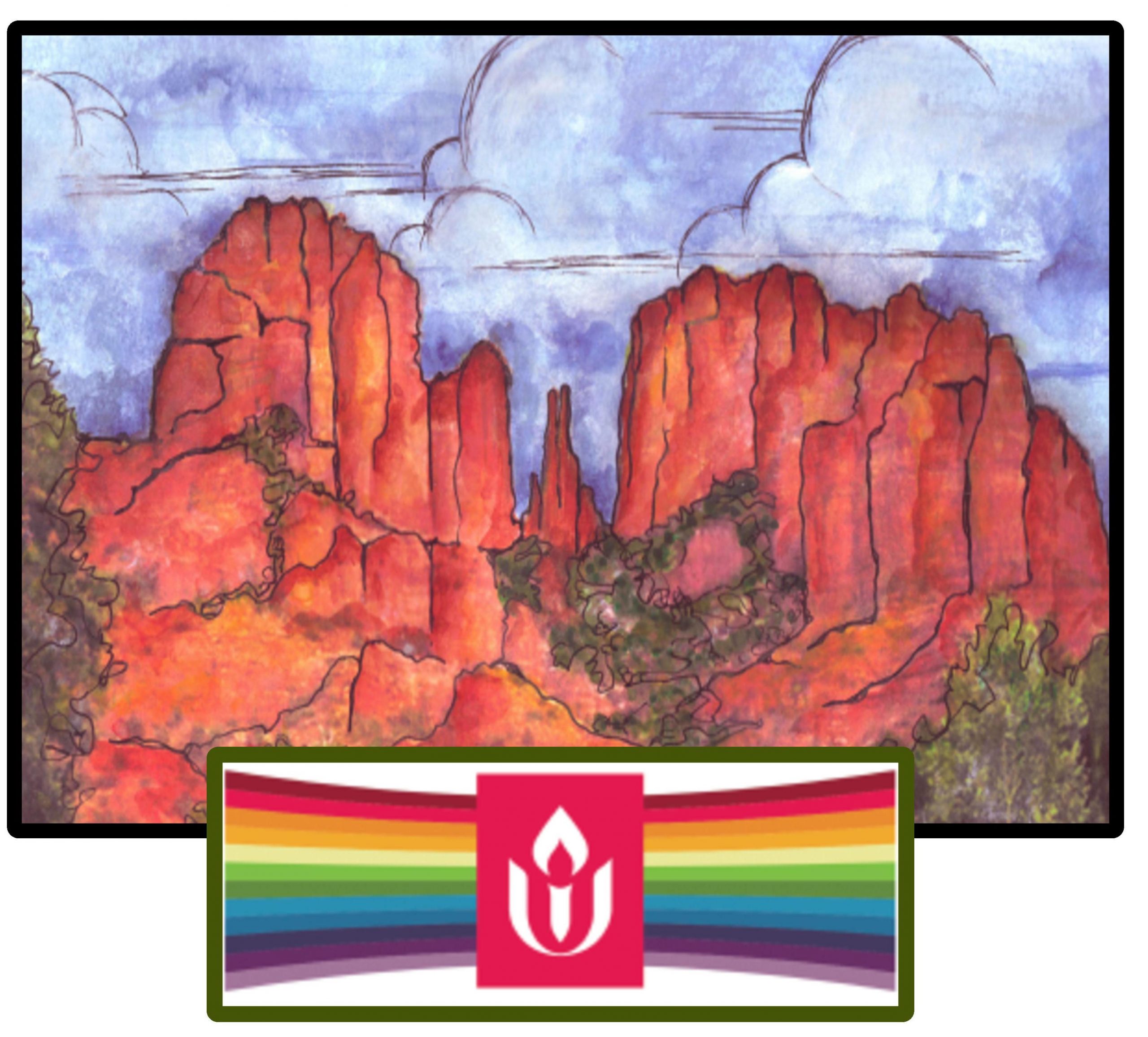Because UUs respect a wide range of beliefs, some think they hold none themselves. Untrue. Here are some UU beliefs:
- Respect for religious traditions. All religions, in every age and culture, have potential value for those who learn about them.
- Freedom of religious expression. Individuals are encouraged to gather ideas and develop their own personal theology—then to share it without fear of censure or reprisal.
- The role of reason and conscience. The ultimate arbiter of religious beliefs is not dogma, scripture, or clergy, but each individual’s deeply thoughtful, heartfelt decision-making.
- The search for truth is never-ending. Keep an open mind and heart and, as you live and learn more, your beliefs will grow wiser and deeper.
- The unity of experience. Faith and knowledge, religion and science, the sacred and the secular can align, if all are grounded in the same experienced reality.
- The worth and dignity of each human being. Everyone has an equal claim to life, liberty, and justice—no idea, ideal, or philosophy is superior to human life.
- Religion should lead to ethical living. Good works emerge from a genuine faith–one’s growing inner maturity is expressed in constructive community involvement.
- The motive force of love. Human life flourishes when love inspires contributing to others’ wellbeing, not to hurt or destruction.
- The value of democracy. Records open to scrutiny, elections open to members, and ideas open to criticism enable people to govern themselves wisely.
- The importance of religious community. Peers are invaluable who care about, confirm, and support our lifelong learning experiences, as well as provide constructive critical insights.
